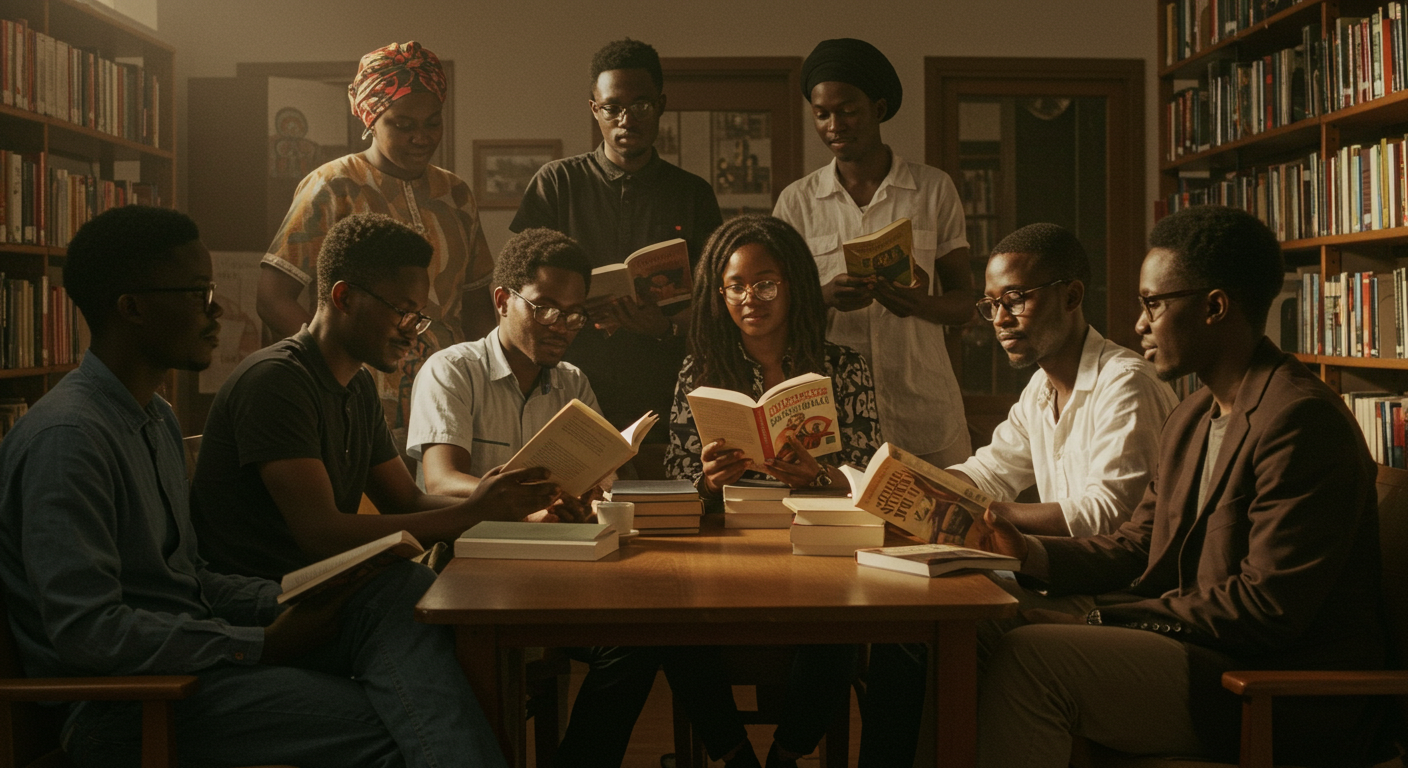African literature is no longer confined to the pages of books or the halls of academia—it is thriving in the digital world, where a new generation of literary enthusiasts is redefining how stories are discovered, discussed, and celebrated. Across Instagram, blogs, YouTube, and podcasts, African bookstagrammers, literary bloggers, and critics are building dynamic communities that amplify homegrown voices, challenge outdated narratives, and foster a deeper appreciation for African storytelling.
This digital literary movement is more than just a trend; it’s a cultural shift. Long marginalized by global publishing gatekeepers, African literature is now being championed by passionate readers who use social media to spotlight emerging authors, critique representation, and connect readers across the continent and diaspora. These influencers are not just reviewers—they are curators, activists, and archivists, ensuring that African stories reach the audiences they deserve.
Why Bookstagrammers and Bloggers Matter
In a world where mainstream literary media often overlooks African writers, these digital creators fill a crucial gap. They:
Challenge the single story by showcasing the diversity of African literature—from speculative fiction to queer narratives, feminist retellings to political thrillers.
Support indie and self-published authors who struggle to find visibility in traditional publishing.
Bridge the gap between writers and readers through interviews, live chats, and virtual book clubs.
Push back against stereotypes by offering nuanced critiques of how Africa and its people are portrayed in literature.
A New Era of Literary Engagement
The rise of African literary influencers coincides with a broader publishing renaissance on the continent. With more African-owned publishing houses (like Cassava Republic, Ouida Books, and Narrative Landscape) and digital platforms (Brittle Paper, The Johannesburg Review of Books), there is now an ecosystem where African stories can flourish without needing external validation.
Bookstagrammers and bloggers are at the heart of this movement, using hashtags like #AfricanReads, #BuyAfricanBooks, and #DecolonizeYourBookshelf to rally readers. They organize readathons, collaborate with bookshops, and even influence publishing trends by highlighting underrepresented genres.
Beyond Reviews: Advocacy & Community Building
Many of these influencers go beyond casual commentary—they advocate for literary equity. Some key themes in their work include:
- Language preservation – Promoting books written in indigenous African languages.
- Fighting book piracy – Encouraging readers to buy books legally to support authors.
- Mental health in literature – Discussing how African writers are addressing trauma, depression, and healing.
- Political storytelling – Analyzing how literature intersects with activism and social change.
As African literature continues to gain global recognition—thanks to award-winning authors like Chimamanda Ngozi Adichie, Ngũgĩ wa Thiong’o, and Leila Aboulela—the role of these digital literary advocates becomes even more vital. They ensure that the conversation doesn’t stop at the big names but extends to new, bold, and unconventional voices reshaping the literary landscape.
Here are some of the standout Bookstagrammers, bloggers, and online influencers leading the literary revolution in Africa.
1. @bookish_potato (Nigeria)
With vibrant photography, candid reviews, and weekly reading challenges, this Nigerian Bookstagrammer has become a favourite among African bibliophiles. Her reviews focus on African authors, female voices, and diverse genres. She also features indie authors and hosts book giveaways to promote local publishing.
2. James Murua Literary Blog (Kenya)
Founded by veteran Kenyan journalist James Murua, this blog is a treasure trove of literary news from Africa. It covers book launches, prize announcements, author interviews, and festival roundups. For anyone looking to stay updated on African literature, Murua’s blog is the place to be.
3. @litspring (South Africa)
An academic-turned-Bookstagrammer, Litspring offers deep, critical takes on African literature. She creates themed reading lists, hosts virtual book clubs, and shares educator resources for African-set texts. Her posts are aesthetically minimalist yet rich in content.
4. @africanbookaddict (Ghana/USA)
A pioneer of African book content online, African Book Addict is a blog and Instagram account founded by Ghanaian-American blogger Sylvia. She reviews contemporary African literature, interviews authors, and shares curated lists for African Readathons. Her blog promotes African publishers and Black-authored books globally.
5. @blackbookish (Nigeria)
This Bookstagrammer uses a clean, moody aesthetic to showcase a variety of African and diasporic reads. Her page often includes reflective captions on identity, Black womanhood, and reading as self-care. She is also an advocate for local bookstores and African publishers.
6. @bookiebuddies_ (Kenya)
This Kenyan Bookstagram page doubles as a reading club. The team hosts monthly themed reads, live author chats, and youth-oriented book drives. Their vibrant reels and posts have helped build a loyal online literary community among East African millennials.
7. @aicha_reads (Senegal)
A trilingual Bookstagrammer who shares content in French, English, and Wolof, Aicha celebrates Francophone African literature. Her feed features everything from Senegalese poetry to speculative fiction, and she often creates reels reviewing lesser-known books from Francophone countries.
8. Kinna Reads (Ghana)
This long-running literary blog by Kinna Likimani blends book reviews, feminist commentary, and reflections on education in Ghana. Kinna Reads is also the founder of The Ghanaian Women’s Literature Prize and frequently curates reading lists for African women writers.
9. The AfroReader (Nigeria)
A beautifully designed blog that highlights African literature, feminism, and self-discovery. The AfroReader features author interviews, personal essays, and reflections on reading culture in Nigeria. Her “Books & Brunch” series is especially popular among young professionals.
10. YouTube Channels:
Chika’s Book Corner (Nigeria) – Engaging reviews with a focus on African and diasporic literature.
Vuvu Vena Reads (South Africa) – Deep-dives into novels, author vlogs, and literary events.
The Bibliophilic Excursions (Kenya) – Combines book talk with travel and food from literary destinations.



